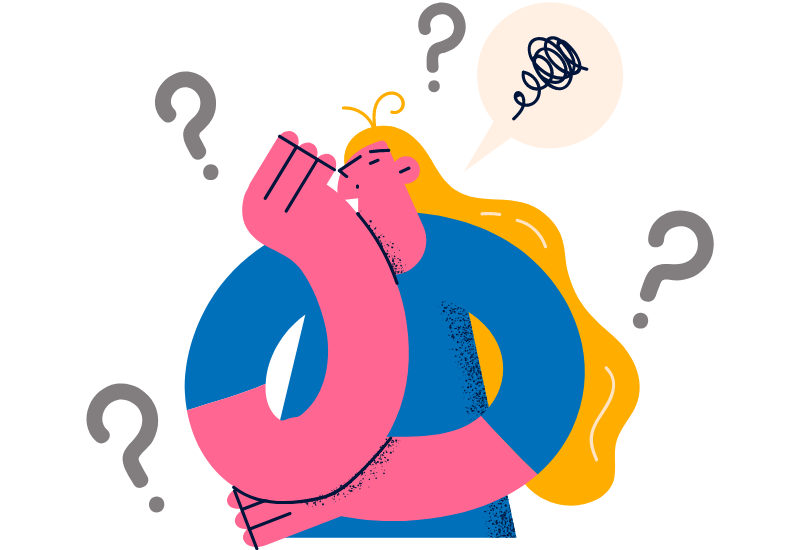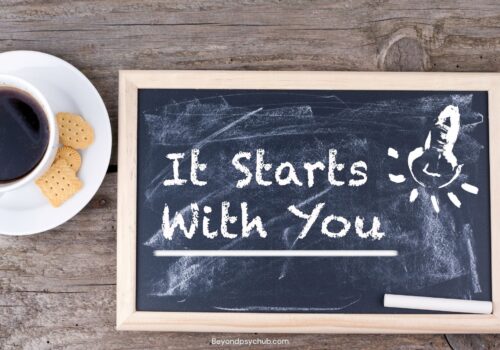In your daily life, you might have witnessed some people who very often react aggressively, panic quickly, have anxiety issues, or lash out whenever life puts an unplanned event, some deadline, or some undesirable responsibility or work in front of them. Meanwhile, there are some people who react calmly, see the positive side of the situation, and often react in an accepted manner whenever they have to face tough situations like those mentioned above. So, how are these people different, and what causes this difference? The answer to this is “Self Regulation”.
Self-regulation is the ability to control our own actions, emotions, and thoughts through self-monitoring, self-evaluation, and self-reinforcement. It is to control our disruptive thoughts and emotions and act in a way that is appropriate to the situation and is in accordance with our values. To take for example, instead of panicking before the deadline, when one plans to work on a project and gives his best to submit it before the deadline, then it is self-regulation. Similarly, when going for an interview, you prepare yourself to give your best and go with a calm mindset instead of self-doubting yourself, which is self-regulation. When you have a sudden urge to eat fast food but you still choose to eat healthy food, then it is self-regulation, and the list is endless. Self-regulation is not a one-day task, it is something that is practiced regularly and needs lots of discipline and determination, Sometimes you fail and sometimes you succeed, but eventually, with consistent efforts and commitment, you can achieve that state of self-regulation.
Importance of Self-Regulation
Self-regulation builds a strong and powerful character. When you decide to take some time to consider “what you feel and what action you should take,” you plan, go over all aspects of the situation, and focus. So, you get to know what causes you to feel like this and what could be done to resolve it, and when you acknowledge your emotions, you are in a relaxed state and you respond in the best possible way, which helps in building character and also helps in taking control of situations.
Self-regulation begins in childhood. Children who practice self-regulation at an early age by sharing their toys and food, playing together, and waiting for their turn, become mentally strong, remain flexible, and adapt to situations as they grow. If children throw tantrums, yell at other children, or hit them, that means they lack self-regulation. Lack of self-regulation leads to low self-confidence and low self-esteem, which further cause anger issues, anxiety, and frustration as children grow into adults, and in the worst cases, can also lead to serious mental health issues.
Self-regulation assists in building support for oneself by cheering when one is down and calming oneself when one is upset, allowing one to put forth his best effort and survive difficult times.
Strategies For Self-Regulation

Meditation
Meditation is a set of techniques that people use to become more self-aware and improve their ability to pay attention and concentrate. Meditation has an impact on every system of the body, it relaxes your mind and muscles, balances your heartbeat and blood pressure, changes your blood chemistry, and brings your body to a complete state of relaxation. Regularly meditating for 15 to 20 minutes helps strengthen the mind and guide actions by making the person more self-aware.
Positive Self-Talk
There are times when situations overwhelm you and nothing is working for you; then, most often, people blame themselves, overgeneralize the situation, or overthink it. When this happens, encouraging yourself and talking to yourself in a positive way can help calm your emotions, change how you think about the situation right away, and even keep you from becoming vulnerable. The more you practice positive self-talk, the better you can regulate your emotions and have a better understanding of yourself as well as your situations.
Recognize The Triggers
There is a specific reason why we feel or respond in a certain way. Some people react harshly to trivial matters and then feel guilty about it, whereas others remain calm even in the midst of major difficulties. Why is this the case? The reason is the hidden side of our personality, or the insecurities, fears, or the negative framing of emotions. So, the solution is to recognize those hidden emotions or fears and talk about the insecurities without fearing anything, if needed take professional help. Once you know the triggers causing harm to your mental state, it would be easier for you to handle and deal with them. When you already know your triggers, you have pre-planned strategies to cope with them, which makes you react in an appropriate way.
Spent Time On Things You Like
Sometimes, to align our body and mind, we need to do some physical activities based on our likes and preferences. It can be any activity of your choice, like reading a few pages of a book, doing some crafts or painting to express what you feel, dancing your heart out, going to the gym, etc. All these activities will help you create a space for yourself where you enjoy being yourself, and this little space or time will help you maintain a balanced state of mind by aligning your body and mind.
Reward Yourself
It is very important to appreciate yourself for every little or big thing. In order to do that, you must reward yourself in whatever way you want, like after eating healthy for the whole week or month, having one cheat meal, working hard on a project, going on a trip, taking a few days off to relax, or even rewarding yourself with a coffee after the ups and downs of the day.
Be Grateful
You should maintain a journal to keep track of your goals and the efforts you are making to achieve them. Do mention all those things you love the most and the kinds of changes you want to see in yourself. Also, be grateful for the things and opportunities you have and show gratitude towards the people around you. Compliment them and spread some positivity. Gratitude brings out the positive in you and helps counter negative emotions.
Nobody is perfect, and the flaws of a person give him a chance to be the best version of himself. So, one should not make silly assumptions about himself or compare himself with others, but instead focus on himself to bring out the best and enjoy the pace of life.















